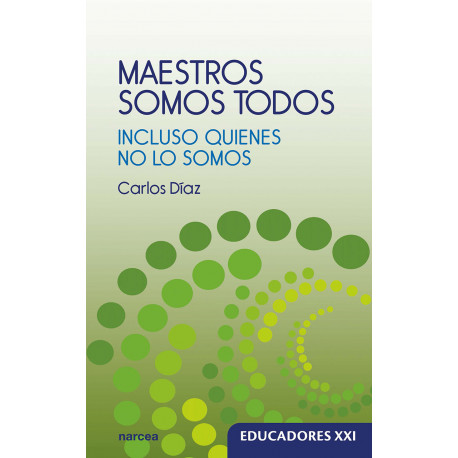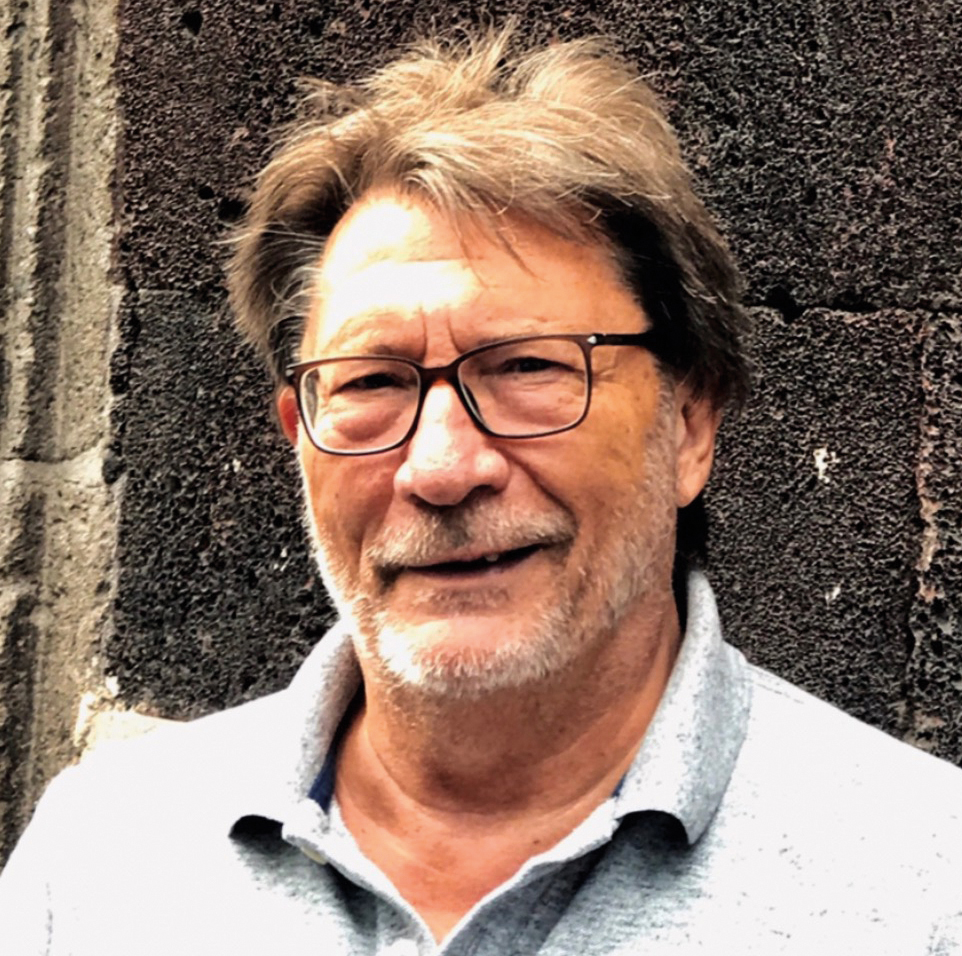Herramientas de accesibilidad
Maestros somos todos
Incluso quienes no lo somos
Esta obra es la de un hijo de maestros, maestro él mismo, y quiere ser un firme alegato en favor de la persona como ser capaz de aprender y de enseñar, actividades que requieren la figura científica y moral del maestro, su adhesión a una escala de valores, y su compromiso existencial con la humanidad.
En palabras del autor: “Desde el primer día en que enseñé, quise siempre hacer crecer en humanidad a cuantos se cruzaban conmigo. Solo busco enseñar lo universal que puede brotar de lo contingente; no son primero las ideas y luego la vida social, sino al mismo tiempo, y por eso quien enseña para lo comunitario verdadero que hay en cada ser humano, funda comunidad. Por eso escribo, viajo, buscando a la humanidad”.
La escuela la hace el maestro. Afortunadamente los maestros hacen que sus alumnos sean más, de lo que hubieran sido sin ellos. La escuela para la comunidad, en tanto que escuela para la vida, solamente será posible si sus fundamentos tienen real solidez y van más allá de la inmanencia pragmática y rompen los muros de las aulas.
Cuando se abre un aula con un buen maestro, la creación entera vuelve a latir.

- ISBN
- 9788427729193
- Páginas
- 188
- Edición
- 1ª edición
- Fecha de edición
- 2022
- Alto
- 21,50 cm
- Ancho
- 13,50 cm
1. El contagio emocional de los valores del maestro
Maestros somos incluso quienes no lo somos
La relación interpersonal en la escuela
2. El maestro modelo no es un jefe
¿Por qué han de ser modélicos los maestros?
Necesita un maestro quien quiera ser maestro
3. El deber, palabra canibalizada en la escuela
¿Por qué debo ir a la escuela?
Un querer y un hacer a la altura del deber
4. ¿Qué pasa con las normas?
La necesidad de unos mínimos regulativos
¿Qué dice la regla?
5. Educar en el orden
Ayudar sin sustituir
No hay tiempo interior sin tiempo íntimo
6. Enseñar a obedecer
Maestro “domador” no, gracias
Desobediencias infértiles y desobediencias fértiles
7. Enseñar a dominar los deseos
Con ternura y vigor
Paciencia y forja del carácter
8. Enseñar a descifrar lo visible y lo invisible
Oye las opiniones ajenas; sólo son opiniones
Para manejar la conciencia mental y emocional
9. Enseñar a hacer contratos
Sin paternalismo: respeto exigente, exigencia respetuosa
Algunas técnicas útiles para cumplir los contratos
10. Sancionar pedagógicamente
¿Prohibido prohibir?
¡Y, cuando digamos no, no cambiemos de parecer!
11. Las “reglas de la abuelita”
La empatía es la mejor medida del yo
Afrontar las situaciones, sin huir
12. Contra el tal Murphy
WE ARE ALL TEACHERS
Even those of us who are not
This book has been written by a son of teachers and a teacher himself, and wants to be a strong plea in favor of the person as a being capable of learning and teaching. These activities require the scientific and moral figure of the teacher, his adherence to a scale of values and his existential commitment to humanity.
In the author’s words: “Since my first day as a teacher, I always wanted everyone who came across me to grow in humanity. I only try to teach the universal that can spring from the secondary; ideas and social life happen at the same time, that’s why whoever teaches for the common truth that exists in every human being, founds community. That is why I write, I travel, looking for humanity”.
The school is made by the teacher. Fortunately, teachers make their students be more than they would have been without them. The school for the community, as a school for life, will only be possible if its foundations have real solidity, if they go beyond pragmatic immanence and break down the walls of the classroom.
When a classroom with a good teacher is opened, the whole creation beats again.
Carlos Díaz has a PhD in Philosophy, Law and Psychology. He is a university professor and author of more than three hundred books. He is a renowned figure in Spain and Latin America. His books have been translated into nine languages.
1. Emotional transmission of the teacher’s values
We are all teachers, even those who are not
The interpersonal relationship at school
2. The model teacher is not a boss
Why should teachers be role models?
He who wants to become a teacher needs a teacher
3. Duty, a cannibalized word at school
Why do I have to go to school?
Wanting and doing at the level of duty
4. What about standards?
The need for regulatory minimums
What does the rule say?
5. Educating in order
Helping without substituting
There is no interior time without intimate time
6. Teaching to obey
Master “tamer”? No, thanks
Fertile disobedience and fertile disobedience
7. Teaching to master desires
With tenderness and vigor
Patience and forging of character
8. Teaching to decipher the visible and the invisible
Listen to the opinions of others; they are just opinions
How to Manage Mental and Emotional Awareness
9. Teaching to make contracts
Without paternalism: demanding respect, respectful demand
Some Useful Techniques for Enforcing Contracts
10. Punishing pedagogically
Forbidden to forbid?
If we say no, let’s not change our minds!
11. “Granny rules”
Empathy is the best measure of self
Facing situations, without running away
12. Against that Murphy
Carlos Díaz
Carlos Díaz es Doctor en Filosofía, en Derecho y en Psicología, y como profesor universitario y autor de más de trescientos libros es una figura reconocida en España y en toda Latinoamérica. Sus obras han sido traducidas a nueve idiomas.




